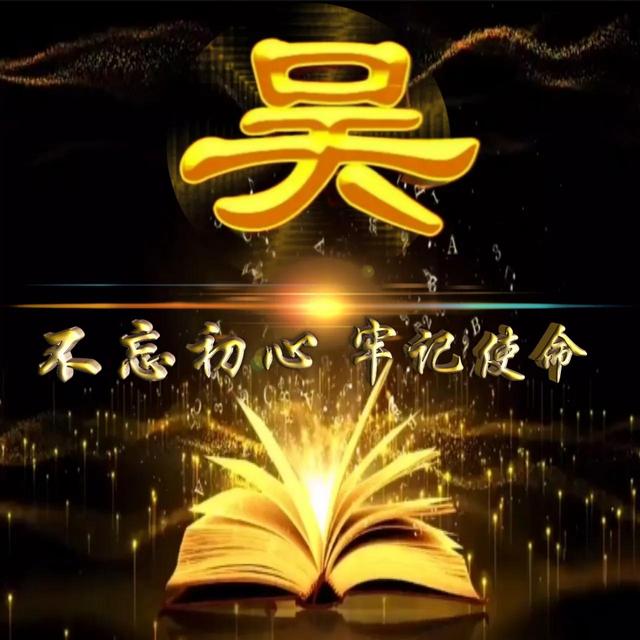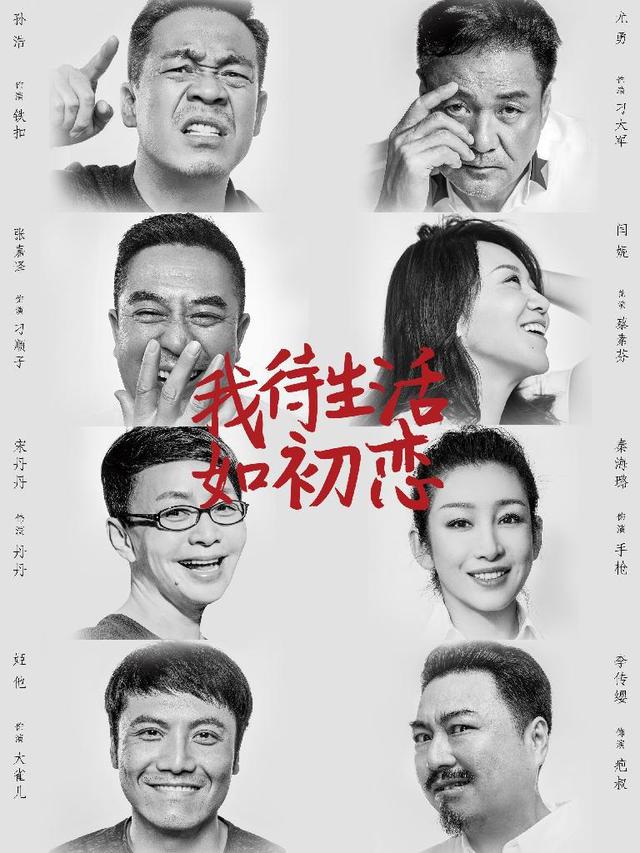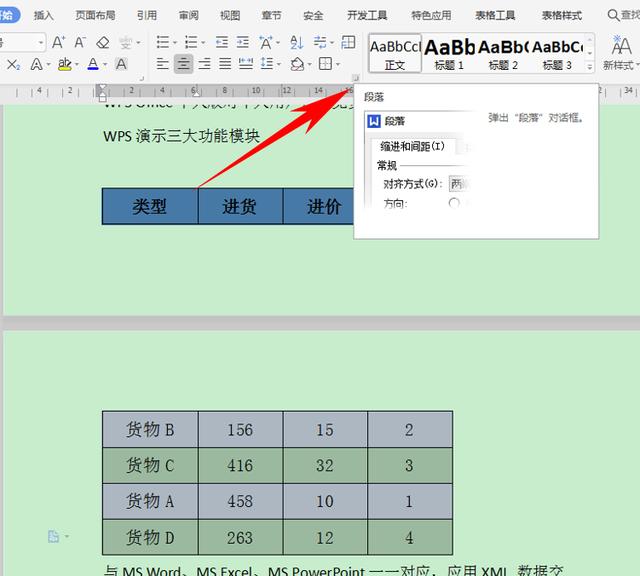经典论语中英文:论语中英文对照

Confucius, in his village, looked simple and sincere, and as if he were not able to speak.
When he was in the prince's ancestral temple, or in the court, he spoke minutely on every point, but cautiously. When he was waiting at court, in speaking with the great officers of the lower grade, he spoke freely, but in a straightforward manner; in speaking with those of the higher grade, he did so blandly, but precisely.
『10.2』君召使摈,色勃如也,足躩如也。揖所与立,左右手,衣前后,襜如也。趋进,翼如也。宾退,必复命,曰:宾不顾矣。When the ruler was present, his manner displayed respectful uneasiness; it was grave, but self-possessed.
When the prince called him to employ him in the reception of a visitor, his countenance appeared to change, and his legs to move forward with difficulty.
He inclined himself to the other officers among whom he stood, moving his left or right arm, as their position required, but keeping the skirts of his robe before and behind evenly adjusted.
He hastened forward, with his arms like the wings of a bird.When the guest had retired, he would report to the prince, "The visitor is not turning round any more."
『10.3』入公门,鞠躬如也,如不容。立不中门,行不履阈。过位,色勃如也,足躩如也,其言似不足者。摄齐升堂,鞠躬如也,屏气似不息者。出,降一等,逞颜色,怡怡如也。没阶,趋进,翼如也。复其位,踧踖如也。When he entered the palace gate, he seemed to bend his body, as if it were not sufficient to admit him.When he was standing, he did not occupy the middle of the gateway; when he passed in or out, he did not tread upon the threshold.
When he was passing the vacant place of the prince, his countenance appeared to change, and his legs to bend under him, and his words came as if he hardly had breath to utter them.
He ascended the reception hall, holding up his robe with both his hands, and his body bent; holding in his breath also, as if he dared not breathe.
When he came out from the audience, as soon as he had descended one step, he began to relax his countenance, and had a satisfied look. When he had got the bottom of the steps, he advanced rapidly to his place, with his arms like wings, and on occupying it, his manner still showed respectful uneasiness.
『10.4』执圭,鞠躬如也,如不胜,上如楫,下如授,勃如战色。足蹜蹜如有循。享礼,有容色。私觌,愉愉如也。When he was carrying the scepter of his ruler, he seemed to bend his body, as if he were not able to bear its weight. He did not hold it higher than the position of the hands in making a bow, nor lower than their position in giving anything to another. His countenance seemed to change, and look apprehensive, and he dragged his feet along as if they were held by something to the ground.
In presenting the presents with which he was charged, he wore a placid appearance. At his private audience, he looked highly pleased.
『10.5』君子不以绀緅饰,红紫不以为亵服。当暑,袗絺绤,必表而出之。缁衣羔裘,素衣麂裘,黄衣狐裘,亵裘长,短右袂。必有寝衣,长一身有半。狐貉之厚以居。去丧,无所不佩。非惟裳,必杀之。羔裘亥冠,不以吊。吉月,必朝服而朝。The superior man did not use a deep purple, or a puce color, in the ornaments of his dress.
Even in his undress, he did not wear anything of a red or reddish color. In warm weather, he had a single garment either of coarse or fine texture, but he wore it displayed over an inner garment.
Over lamb's fur he wore a garment of black; over fawn's fur one of white;
and over fox's fur one of yellow. The fur robe of his undress was long, with the right sleeve short. He required his sleeping dress to be half as long again as his body.
When staying at home, he used thick furs of the fox or the badger.
When he put off mourning, he wore all the appendages of the girdle.
His undergarment, except when it was required to be of the curtain shape,
was made of silk cut narrow above and wide below. He did not wear lamb's fur or a black cap on a visit of condolence. On the first day of the month he put on his court robes, and presented himself at court.
『10.6』齐必有明衣,布。齐必变食,居必迁坐。When fasting, he thought it necessary to have his clothes brightly clean and
made of linen cloth. When fasting, he thought it necessary to change his food, and also to change the place where he commonly sat in the apartment.
『10.7』食不厌精,脍不厌细。食饐而餲,鱼馁而肉败,不食。色恶不食,臭恶不食。失饪不食,不时不食。割不正不食。不得其酱不食。肉虽多,不使胜食气。惟酒无量,不及乱。沽酒市脯不食。不撤姜食,不多食。祭于公,不宿肉。祭肉不出三日,出三日,不食之矣。食不语,寝不言。虽疏食菜羹瓜祭,必齐如也。He did not dislike to have his rice finely cleaned, nor to have his mince meat cut quite small.
He did not eat rice which had been injured by heat or damp and turned sour, nor fish or flesh which was gone. He did not eat what was discolored, or what was of a bad flavor, nor anything which was ill-cooked, or was not in season.
He did not eat meat which was not cut properly, nor what was served without its proper sauce.
Though there might be a large quantity of meat, he would not allow what he took to exceed the due proportion for the rice. It was only in wine that he laid down no limit for himself, but he did not allow himself to be confused by it.
He did not partake of wine and dried meat bought in the market. He was never without ginger when he ate. He did not eat much.
When he had been assisting at the prince's sacrifice, he did not keep the flesh which he received overnight. The flesh of his family sacrifice he did not keep over three days. If kept over three days, people could not eat it.
When eating, he did not converse. When in bed, he did not speak.Although his food might be coarse rice and vegetable soup, he would offer a
little of it in sacrifice with a grave, respectful air.
『10.8』席不正不坐。If his mat was not straight, he did not sit on it.
『10.9』乡人饮酒,杖者出,斯出矣。乡人傩,朝服而立于阼阶。When the villagers were drinking together, upon those who carried staffs going out, he also went out immediately after. When the villagers were going through their ceremonies to drive away pestilential influences, he put on his court robes and stood on the eastern steps.
『10.10』问人于他邦。再拜而送之。康子馈药,拜而受之。曰:丘未达,不敢尝。When he was sending complimentary inquiries to any one in another state, he bowed twice as he escorted the messenger away.Chi K'ang having sent him a present of physic, he bowed and received it,
saying, "I do not know it. I dare not taste it."

The stable being burned down, when he was at court, on his return he said,
"Has any man been hurt?" He did not ask about the horses.
『10.12』君赐食,必正席先尝之。君赐腥,必熟而荐之。When the he would adjust his mat, first taste it, and then give it away to others. When the prince sent him a gift of undressed meat, he would have it cooked, and offer it to the spirits of his ancestors.
『10.13』君赐生,必畜之。侍食于君,君祭,先饭。疾,君视之,东首,加朝服拖绅。君命召,不俟驾行矣。When the prince sent him a gift of a living animal, he would keep it alive. When he was in attendance on the prince and joining in the entertainment, the prince only sacrificed. He first tasted everything. When he was ill and the prince came to visit him, he had his head to the east, made his court robes be spread over him, and drew his girdle across them. When the prince's order called him, without waiting for his carriage to be yoked, he went at once.
『10.14』入太庙,每事问。When he entered the ancestral temple of the state, he asked about everything.
『10.15』朋友死,无所归。曰:于我殡。朋友之馈,虽车马,非祭肉,不拜。When any of his friends died, if he had no relations offices, he would say, "I will bury him."When a friend sent him a present, though it might be a carriage and horses, he did not bow.The only present for which he bowed was that of the flesh of sacrifice.
『10.16』寝不尸,居不容。见齐衰者,虽狎必变。见冕者与瞽者,虽亵必以貌。凶服者式之。式负版者。有盛馔,必变色而作。迅雷,风烈必变。In bed, he did not lie like a corpse. At home, he did not put on any formal deportment. When he saw any one in a mourning dress, though it might be an acquaintance, he would change countenance; when he saw any one wearing the cap of full dress, or a blind person, though he might be in his undress, he would salute him in a ceremonious manner. To any person in mourning he bowed forward to the crossbar of his carriage; he bowed in the same way to any one bearing the tables of population. When he was at an entertainment where there was an abundance of provisions set before him, he would change countenance and rise up. On a sudden clap of thunder, or a violent wind, he would change countenance.
『10.17』升车,必正立执绥。车中不内顾,不疾言,不亲指。When he was about to mount his carriage, he would stand straight, holding the cord.When he was in the carriage, he did not turn his head quite round, he did not talk hastily, he did not point with his hands.
『10.18』色斯举矣。翔而后集。曰:山梁雌雉,时哉!时哉!子路共之,三嗅而作。Seeing the countenance, it instantly rises. It flies round, and by and by
settles. The Master said, "There is the hen-pheasant on the hill bridge. At its
season! At its season!" Tsze-lu made a motion to it. Thrice it smelt him and
then rose.

The Master said, "The men of former times in the matters of ceremonies and music were rustics, it is said, while the men of these latter times, in ceremonies and music, are accomplished gentlemen."If I have occasion to use those things, I follow the men of former times."
『11.2』子曰:“从我於陈蔡者,皆不及门也。”The Master said, "Of those who were with me in Ch'an and Ts'ai, there are none to be found to enter my door."
『11.3』德行:颜渊、闵子骞、冉伯牛、仲弓;言语∶宰我、子贡;政事∶冉有、李路;文学∶子游、子夏。Distinguished for their virtuous principles and practice, there were Yen Yuan, Min Tsze-ch'ien, Zan Po-niu, and Chung-kung; for their ability in speech, Tsai Wo and Tsze-kung; for their administrative talents, Zan Yu and Chi Lu; for their literary acquirements, Tsze-yu and Tsze-hsia.
『11.4』子曰:“回也,非助我者也!於吾言,无所不说。”The Master said, "Hui gives me no assistance. There is nothing that I say in which he does not delight."
『11.5』子曰:“孝哉闵子骞,人不间於其父母皆弟之言。”The Master said, "Filial indeed is Min Tsze-ch'ien! Other people say nothing of him different from the report of his parents and brothers."
『11.6』南容三复白圭,孔子以其兄之子妻之。Nan Yung was frequently repeating the lines about a white scepter stone. Confucius gave him the daughter of his elder brother to wife.
『11.7』李康子问:“弟子孰为好学?“孔子对曰:”有颜回者好学,不幸短命死矣!今也则亡。“Chi K'ang asked which of the disciples loved to learn. Confucius replied to him, "There was Yen Hui; he loved to learn. Unfortunately his appointed time was short, and he died. Now there is no one who loves to learn, as he did."
『11.8』颜渊死,颜路请子之车以为之椁。子曰:“才不才,亦各言其子也。鲤也死,有棺而无椁;吾不徒行,以为之椁,以吾从大夫之後,不可徒行也。“When Yen Yuan died, Yen Lu begged the carriage of the Master to sell and get
an outer shell for his son's coffin.
The Master said, "Every one calls his son his son, whether he has talents or has not talents. There was Li; when he died, he had a coffin but no outer shell. I would not walk on foot to get a shell for him, because, having followed in the rear of the great officers, it was not proper that I should walk on foot."
『11.9』颜渊死,子曰:“噫!天丧予!天丧予!”When Yen Yuan died, the Master said, "Alas! Heaven is destroying me! Heaven
is destroying me!"
『11.10』颜渊死,子哭之恸。从者曰:“子恸矣!”曰:“有恸乎!非夫人之为恸而谁为!”When Yen Yuan died, the Master bewailed him exceedingly, and the disciples who were with him said, "Master, your grief is excessive!""Is it excessive?" said he. "If I am not to mourn bitterly for this man, for whom should I mourn?"

When Yen Yuan died, the disciples wished to give him a great funeral, and the Master said, "You may not do so."The disciples did bury him in great style. The Master said, "Hui behaved towards me as his father. I have not been able to treat him as my son. The fault is not mine; it belongs to you, O disciples."
『11.12』李路问事鬼神。子曰:“未能事人,焉能事鬼?”“敢问死?”曰:“未知生,焉知死?”Chi Lu asked about serving the spirits of the dead. The Master said, "While you are not able to serve men, how can you serve their spirits?" Chi Lu added, "I venture to ask about death?" He was answered, "While you do not know life, how can you know about death?"
『11.13』闵子侍侧,U 8ABEU 8ABE如也;子路,行行如也;冉有、子贡,侃侃如也。子乐。“若由也,不得其死然。”The disciple Min was standing by his side, looking bland and precise; Tsze-lu, looking bold and soldierly; Zan Yu and Tsze-kung, with a free and straightforward manner. The Master was pleased. He said, "Yu, there!-he will not die a natural death."
『11.14』鲁人为长府。闵子骞曰:“仍旧贯,如之何?何必改作!*棺釉弧谩阜蛉*不言,言必有中。”Some parties in Lu were going to take down and rebuild the Long Treasury.Min Tsze-ch'ien said, "Suppose it were to be repaired after its old style;-why must it be altered and made anew?"The Master said, "This man seldom speaks; when he does, he is sure to hit the point."
『11.15』子曰:“由之瑟,奚为於丘之门?”门人不敬子路。子曰:“由也升堂矣!未入於室也!”The Master said, "What has the lute of Yu to do in my door?"
The other disciples began not to respect Tszelu. The Master said, "Yu has ascended to the hall, though he has not yet passed into the inner apartments."
『11.16』子贡问:“师与商也孰贤?”子曰:“师也过,商也不及。”曰:“然则师愈与?”子曰:“过犹不及。”Tsze-kung asked which of the two, Shih or Shang, was the superior. The Master said, "Shih goes beyond the due mean, and Shang does not come up to it." "Then," said Tsze-kung, "the superiority is with Shih, I suppose." The Master said, "To go beyond is as wrong as to fall short."
『11.17』李氏富於周公,而求也为之聚敛而附益之。子曰∶「非吾徒也,小子鸣鼓而攻之可也!」The head of the Chi family was richer than the duke of Chau had been, and yet Ch'iu collected his imposts for him, and increased his wealth. The Master said, "He is no disciple of mine. My little children, beat the drum and assail him."
『11.18』柴也愚,参也鲁,师也辟,由也U 55AD。子曰∶「回也奇庶乎!屡空;赐不受命,而货殖焉;亿则屡中。」Ch'ai is simple. Shan is dull. Shih is specious. Yu is coarse. The Master said, "There is Hui! He has nearly attained to perfect virtue. He is often in want.
"Ts'ze does not acquiesce in the appointments of Heaven, and his goods are
increased by him. Yet his judgments are often correct."
『11.19』子张问善人之道。子曰:“不践迹,亦不入於室!”子曰:“论笃是与,君子者乎?色庄者乎?”Tsze-chang asked what were the characteristics of the good man. The Master said, "He does not tread in the footsteps of others, but moreover, he does not enter the chamber of the sage."
The Master said, "If, because a man's discourse appears solid and sincere,
we allow him to be a good man, is he really a superior man? or is his gravity
only in appearance?"
『11.20』子路问∶「闻斯行诸?」子曰∶「有父兄在,如之何其闻斯行之!」冉有问∶
「闻斯行诸?」子曰∶「闻斯行之!」公西华曰∶「由也问『闻斯行诸?』,子曰∶『有父兄在』;求也问,『闻斯行诸?』子曰∶『闻斯行之』。赤也感,敢问?」子曰∶「求也退,故进之;由也兼人,故退之。」
Tsze-lu asked whether he should immediately carry into practice what he heard. The Master said, "There are your father and elder brothers to be consulted;-why should you act on that principle of immediately carrying into practice what you hear?" Zan Yu asked the same, whether he should immediately carry into practice what he heard, and the Master answered, "Immediately carry into practice what you hear." Kung-hsi Hwa said, "Yu asked whether he should carry immediately into practice what he heard, and you said, 'There are your father and elder brothers to be consulted.' Ch'iu asked whether he should immediately carry into practice what he heard, and you said, 'Carry it immediately into practice.' I, Ch'ih, am perplexed, and venture to ask you for an explanation." The Master said, "Ch'iu is retiring and slow; therefore I urged him forward. Yu has more than his own share of energy; therefore I kept him back."

The Master was put in fear in K'wang and Yen Yuan fell behind. The Master, on his rejoining him, said, "I thought you had died." Hui replied, "While you were alive, how should I presume to die?"
『11.22』李子然问∶「仲由、冉求,可谓大臣与?」子曰∶「吾以子为异之问,曾由与求之问?所谓大臣者,以道事君,不可则止;今由与求也,可谓具臣矣。」曰∶「然则从之者与?」子曰∶「弑父与君,亦不从也。」Chi Tsze-zan asked whether Chung Yu and Zan Ch'iu could be called great
ministers.
The Master said, "I thought you would ask about some extraordinary individuals, and you only ask about Yu and Ch'iu!
"What is called a great minister, is one who serves his prince according to what is right, and when he finds he cannot do so, retires.
"Now, as to Yu and Ch'iu, they may be called ordinary ministers."
Tsze-zan said, "Then they will always follow their chief;-win they?"
The Master said, "In an act of parricide or regicide, they would not follow him."
『11.23』子路使子羔为费宰。子曰∶「贼夫人之子!」子路曰∶「有民人焉!有社稷焉,何必读书,然後为学?」子曰∶「是故恶夫佞者。」Tsze-lu got Tsze-kao appointed governor of Pi.
The Master said, "You are injuring a man's son."
Tsze-lu said, "There are, there, common people and officers; there are the altars of the spirits of the land and grain. Why must one read books before he can be considered to have learned?"
The Master said, "It is on this account that I hate your glib-tongued people."
『11.24』子路、曾U 6673、冉有、公西华侍坐。子曰∶「以吾一日长乎尔,毋吾以也。居则曰∶『不吾知也!』如或知尔,则何以哉?」子路率尔而对,曰∶「千乘之国,摄乎大国之间U 9592,加之以师旅,因之以饥馑,由也为之,比及三年,可使杏漫},且知方也。」夫子哂之。「求,尔何如?」对曰∶「方六七十,如五六十,求也为之,比及三年,可使足民;如其礼乐,以俟君子。」「赤,尔何如?」对曰∶「非曰能之,愿学焉!宗庙之事,如会同,端章甫,愿为小相焉。」「点,尔何如?」鼓瑟希,铿尔,舍瑟而作。对曰∶「异乎三子者之撰。」子曰∶「何伤乎?赤各言其志也。」曰∶「莫春者,春服既成;冠者五六人,童子六七人,浴乎沂,风乎舞雩,咏而归。」夫子喟然U 6B4E曰∶「吾与点也!」三子者出,曾U 6673後。曾U 6673曰∶「夫三子者之言何如?」子曰∶「亦各言其志也已矣!」曰∶「夫子何哂由也?」曰∶「为国以礼,其言不让,是故哂之。」「唯求则非邦也与?」「安见方六七十,如五六十,而非邦也者。」「唯赤非邦也与?」「宗庙会同,非诸侯而何?赤也为之小,孰能为之大!」Tsze-lu, Tsang Hsi, Zan Yu, and Kunghsi Hwa were sitting by the Master.
He said to them, "Though I am a day or so older than you, do not think of
that.
"From day to day you are saying, 'We are not known.' If some ruler were to
know you, what would you like to do?"
Tsze-lu hastily and lightly replied, "Suppose the case of a state of ten thousand chariots; let it be straitened between other large cities; let it be suffering from invading armies; and to this let there be added a famine in corn and in all vegetables:-if I were intrusted with the government of it, in three years' time I could make the people to be bold, and to recognize the rules of righteous conduct." The Master smiled at him.
Turning to Yen Yu, he said, "Ch'iu, what are your wishes?" Ch'iu replied, "Suppose a state of sixty or seventy li square, or one of fifty or sixty, and let me have the government of it;-in three years' time, I could make plenty to abound among the people. As to teaching them the principles of propriety, and music, I must wait for the rise of a superior man to do that."
"What are your wishes, Ch'ih," said the Master next to Kung-hsi Hwa. Ch'ih replied, "I do not say that my ability extends to these things, but I should wish to learn them. At the services of the ancestral temple, and at the audiences of the princes with the sovereign, I should like, dressed in the dark square-made robe and the black linen cap, to act as a small assistant."
Last of all, the Master asked Tsang Hsi, "Tien, what are your wishes?" Tien, pausing as he was playing on his lute, while it was yet twanging, laid the instrument aside, and "My wishes," he said, "are different from the cherished purposes of these three gentlemen." "What harm is there in that?" said the Master; "do you also, as well as they, speak out your wishes." Tien then said, "In this, the last month of spring, with the dress of the season all complete, along with five or six young men who have assumed the cap, and six or seven boys, I would wash in the I, enjoy the breeze among the rain altars, and return home singing." The Master heaved a sigh and said, "I give my approval to Tien."
The three others having gone out, Tsang Hsi remained behind, and said, "What
do you think of the words of these three friends?" The Master replied, "They simply told each one his wishes."
Hsi pursued, "Master, why did you smile at Yu?"
He was answered, "The management of a state demands the rules of propriety. His words were not humble; therefore I smiled at him."
Hsi again said, "But was it not a state which Ch'iu proposed for himself?" The reply was, "Yes; did you ever see a territory of sixty or seventy li or one of fifty or sixty, which was not a state?"
Once more, Hsi inquired, "And was it not a state which Ch'ih proposed for himself?" The Master again replied, "Yes; who but princes have to do with ancestral temples, and with audiences but the sovereign? If Ch'ih were to be a small assistant in these services, who could be a great one?



免责声明:本文仅代表文章作者的个人观点,与本站无关。其原创性、真实性以及文中陈述文字和内容未经本站证实,对本文以及其中全部或者部分内容文字的真实性、完整性和原创性本站不作任何保证或承诺,请读者仅作参考,并自行核实相关内容。文章投诉邮箱:anhduc.ph@yahoo.com






